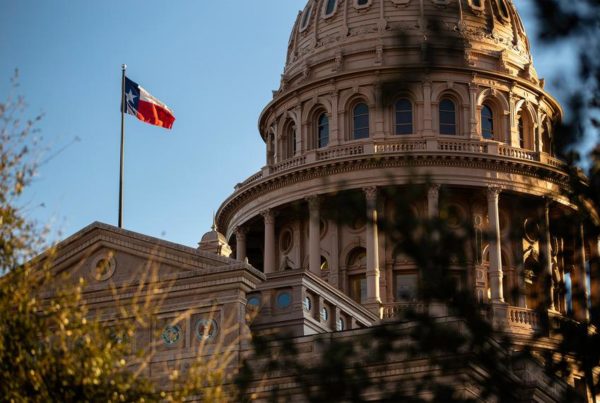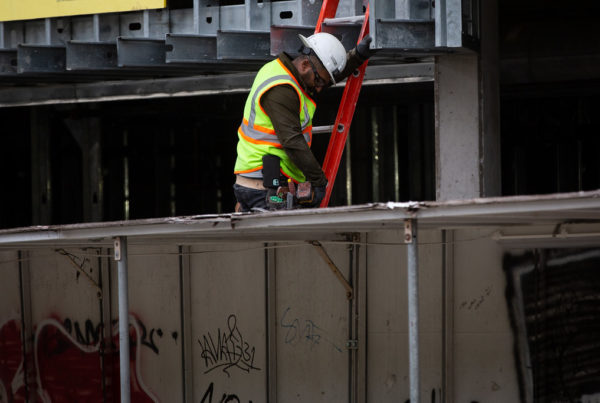From KUT:
As the process to redraw political boundaries in Texas gets underway, Democrats and civil rights groups say they will fight to ensure the political power of racial minorities is increased.
The redistricting process happens every 10 years after the census is completed. Lawmakers here will be determining the boundaries for representatives to the state House, state Senate, Texas Board of Education and U.S. House.
And Republicans are in control of the process.
President Obama’s attorney general, Eric Holder, is chairman of the National Democratic Redistricting Committee. His role is to keep an eye on what Republicans in state legislatures are doing as they redraw political boundaries for upcoming elections.
Holder said he’s watching Texas, in particular, because it’s completely controlled by Republicans and its population has been growing fast. A growing population means growing political power, too.
“If Republicans are allowed to gerrymander on a racial or partisan basis in Texas, it can have national consequences,” he said.
Gerrymandering is when maps are drawn in a way that creates an unfair advantage for a particular party. Often this is done by manipulating the boundaries of political districts so they include the kind of voters lawmakers want — while excluding others. Holder said he wants to make sure Republicans in Texas don’t draw maps that favor their party at the expense of racial minorities.
“If you draw those maps fairly, you will have much more competitive districts, you will have greater representation for communities of color and for the Hispanic community,” he said.
He doesn’t expect that to happen.
A Bad Track Record
Civil rights groups in the state are predicting Black and brown communities will not gain the amount of political power they should based on the census. That’s because Texas has a bad track record with this, Gary Bledsoe, president of the Texas NAACP, said.
“Courts have decided after each session of redistricting from 1970 on that the state has discriminated against African Americans and/or Latinos,” he said.
Nina Perales, vice president of litigation for the Mexican American Legal Defense and Educational Fund, said it’s important to note that it’s not just Republicans with the bad track record. Her group has been suing Texas lawmakers over redistricting since the 1970s.
“And that was before Republicans were in charge of redistricting in Texas, when Democrats were still in charge,” she said. “The state was still found to have discriminated against Latino voters in every cycle. And so what we care about and what we look for is plans that are fair to Latino voters regardless of the party affiliation of the people who are drawing those plans.”
Perales said in her experience it’s not just about drawing districts that favor one party over the other; lawmakers often are more motivated to draw political maps that favor the individual lawmakers already in those political seats — and that cuts across both parties.
“So we are extremely vigilant about discrimination against Latino voters in redistricting plans regardless of where it comes from,” Perales said.
No Federal Oversight
Bledsoe said it’s still important to remember Republicans are going to have power over the process this time, and that matters for people of color. Republicans have built their political power at the expense of Black and brown people for decades now, he said, and that instinct seems to be getting only stronger.
“This year it’s much more strident,” he said. “This is part of a broad effort to make sure that Black and brown people don’t share power.”
Holder said he’s concerned about this, too, especially because Texas just passed a sweeping elections bill that imposes a number of voting restrictions and criminal penalties related to voting.
“Those states that have the greatest amount of voter suppression are also the ones that have the greatest amount of gerrymandering,” he said.
And there are fewer guardrails in the federal court system this time around. In 2013, the U.S. Supreme Court gutted a part of the Voting Rights Act that required Texas and other states with a history of discriminatory voting practices to clear their new maps with the federal government.
Perales said this will be the first year Texas won’t have the federal government making sure racial minorities aren’t hurt by its maps before they’re in place.
“In this redistricting cycle, Texas is maybe going to enact new redistricting plans that would get signed by the governor — and then if the plans are not fair or if they take minority voters backwards in a way that violates the Voting Rights Act, it is going to be up to private parties to bring up litigation on those plans,” she said. “And somehow all of this is going to have to get resolved by the primaries next March.”
A Condensed Timeline
Usually redistricting is done during a regular legislative session, which is several months long. This time, lawmakers have just 30 days to draw and pass new maps.
Perales said that means there will also be less time for the public to analyze and comment on the proposed maps. She said transparency and public input are vital to getting fair boundaries.
“Typically redistricting is something that gets done in backrooms by operatives,” she said. “And so it’s going to be even more of a challenge in this redistricting cycle to enforce transparency, which is something that we should have in redistricting.”
Bledsoe said if voters care about what public policy gets passed in Texas, they need to take part in the redistricting process. He and others hope Texans plan to give their input on the maps when they come out.
“If you believe in democracy, if you don’t want to see one group that is just able to sit in a backroom and make decisions that impact your life, then you need to be involved in this process,” he said. “And we need to hear from all the voices around the state.”
Got a tip? Email Ashley Lopez at alopez@kut.org. Follow her on Twitter @AshLopezRadio.















